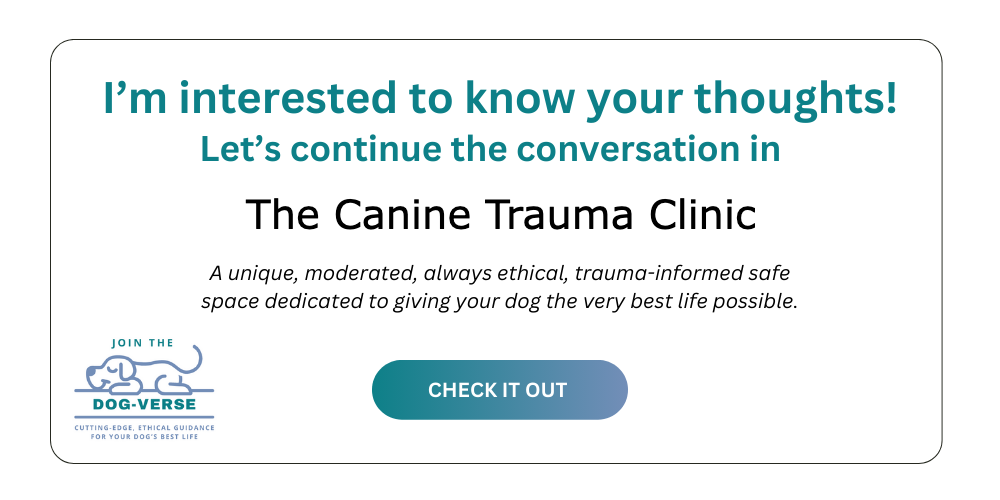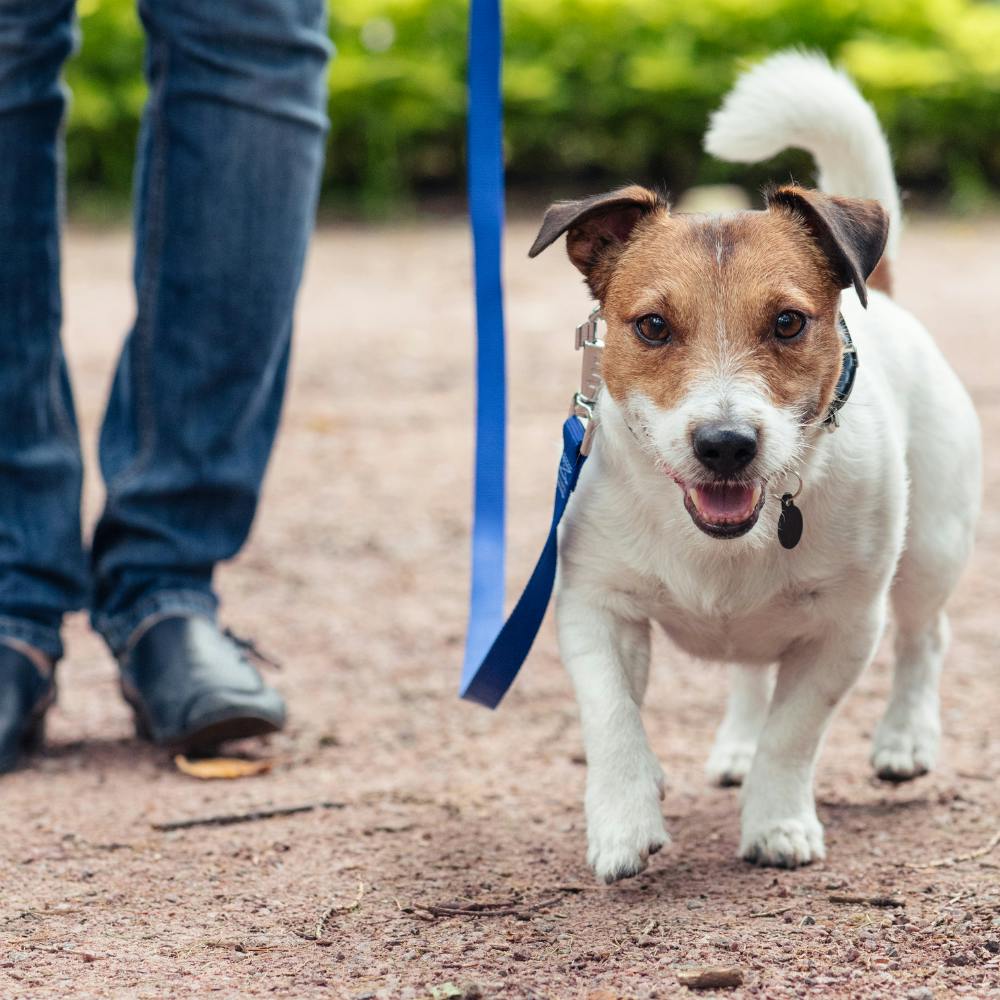by Pro Trainer Annie Phenix, ACB-KSA
I am a professional canine behavior expert and I share my life with two dogs who have – or shall I say HAD – extreme car phobia. My two heeler-border collie brothers suffered an enormous trauma early in life that affected them for years afterwards and their trauma centered on car travel. They were cruelly removed from the mother at 5 weeks of age. Puppies must stay with their mother at least until 8 weeks of age to obtain critical learning skills but more importantly to learn to feel secure in the world with their mom’s presence and nurturance. If you take that away from a puppy at 5 weeks you are creating a world of trauma and anxiety for that dog and potentially for the rest of that dog’s life.
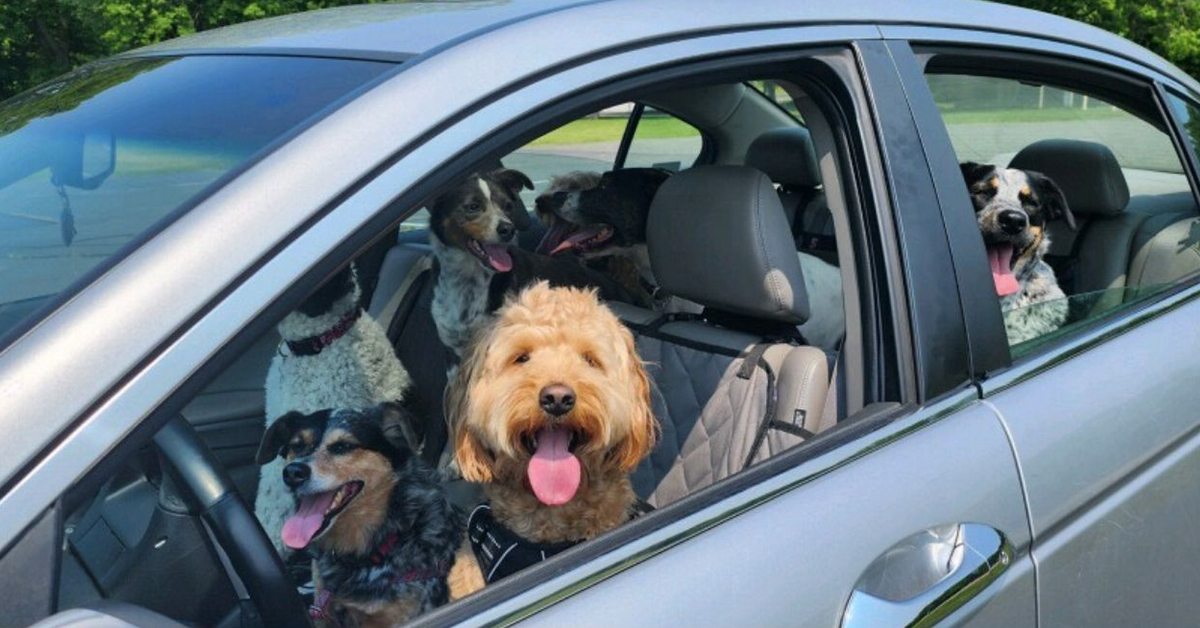
After they were taken from the security and warmth of their mother they were put in the back of a truck and driven seven hours away to a new town. They were then left in a backyard unsupervised and left to their own devices. They contracted two type of worms and were covered with fleas and were beginning to fight over food. Their little bodies and developing minds had such a rough beginning thanks to irresponsible humans who should have known better.
I adopted Finn and Cooper at 51/2 weeks of age. They threw up and had streaming diarrhea on our two-hour trip home. I knew they were far too young to be away from their mother and that they would need all of my canine behavior knowledge to help them recover. I did not yet know the extent of their car phobia.
The early trauma my two dogs experienced is sadly not rare and neither is car phobia, An Italian study1 examined how dogs respond to travel and discovered that owners report 23.8 percent of dogs have concerns about it. While that number may seem small, according to Pet Ownership Statistics 2024 from The Zebra2, there are 471 million pet dogs in the world. Based on what the Italian study learned, this means there could be as many as 112 million dogs around the world who suffer from car distress.
The figure of 23% of dogs who have travel issues doesn’t surprise me because that corresponds with what I have seen in my practice of 30 years. I also know that if you have a dog who hates to travel, the numbers don’t matter. It matters to you personally, as it I did for me.
I adopted my traumatized boys in Aug. 2019. I quickly went to work proving to them they were safe with me (and I teach courses on how to do this – visit my website for more information: www.choosetotrainhumane.com) and they now are the happiest dogs I’ve ever lived with. But – their car worries remained and then Covid hit so we didn’t go anywhere outside of walking distance of our home for two years.
You can go through a grief period (I did) when the dog you bring home doesn’t enjoy or is unable to participate in what you love doing the most. I live in the mountains and I find my peace in hiking. I have always had a dog by my side on walks. I feel uncomfortable and out of sorts walking in the forest alone or even down the road from my house. So I did what so many dog owners do when they run into seemingly un-solvable canine behavior problems: I stopped doing what I loved the most. I stopped hiking. I made my world smaller for my beloved dogs.
Does this sound familiar to you?
I grieved.
And then I made a plan to fix it for my dogs and for myself.
I started researching studies and information on how to help heal a dog’s car phobia and the results were shocking. This affliction is not well-studied even though it affects so many dogs. You probably have also come across old-wives-tale advice that includes such things as giving your dog a ginger snap cookie to help settle his stomach. Ginger snaps will never heal phobia.
Some dogs do develop care phobia because of motion sickness and if that is the true cause, your veterinarian is your health partner on that issue. However, discomfort in the car for whatever reason can and does lead to many dogs experiencing a true traumatic reaction when they are forced to travel in a car.
Some strong canine reactions to stress can include:
- Vomiting
- Hypersalivation
- Barking, yelping or whining
- Diarrhea
- Heaving
- Panting
- Pacing
- Freezing
- Trembling
- Trying to escape
Sadly, most dog owners do not recognize when their dog is expressing in canine language that she is stressed out. This is borne out in a new UK study3 that demonstrates that 9 out 10 dog owners are not able to identify crucial signs of stress in a dog despite the fact that 75% of dog owners report being confident that they can read their dog’s body language.
What is even more alarming for me as a canine behavior expert is knowing that dogs also communicate in quite subtle ways when they are stressed and that is missed by a vast majority of owners on a daily basis.
Some subtle signs of canine anxiety that could indicate a lower level of stress or anxiety (that they still need our help with) can include:
- Slow blinking
- Yawning
- Lip licking
- Whale eye (where you can see the white around their eyes)
- Stiffness in the body
- Ears pulled back
- Mouth tightly shut
- Pacing
- Over-excitability

Because dog owners are so poorly educated or knowledgeable about what stress signals look like in dogs, I can assure you that there are many more dogs who suffer from car sensitivity than we know.
So how we can help them? I have resolved my dog’s car phobia concerns. While Finn (red heeler) will probably never feel 100% secure in a car, he willingly jumps in the car and even chooses to get into the car over a walk. He no longer has the extreme car phobia symptoms such as streaming diarrhea and throwing up within a minute of being in a car. His brother Copper is completely fine and happy in the car. I happily can enjoy the mountains again with my best buddies alongside of me.
Looking for one-on-one help? Visit my website and find a consult or course that is just right for you!
www.ChoosetoTrainHumane.com
And you can join me FREE in our online, safe, supportive and always ethical dog community, The Canine Trauma Clinic.
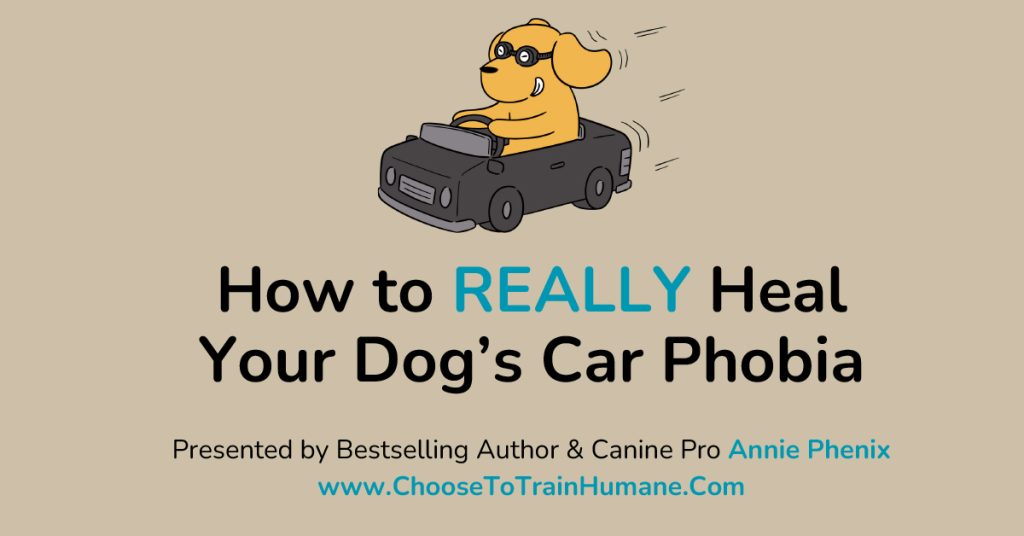
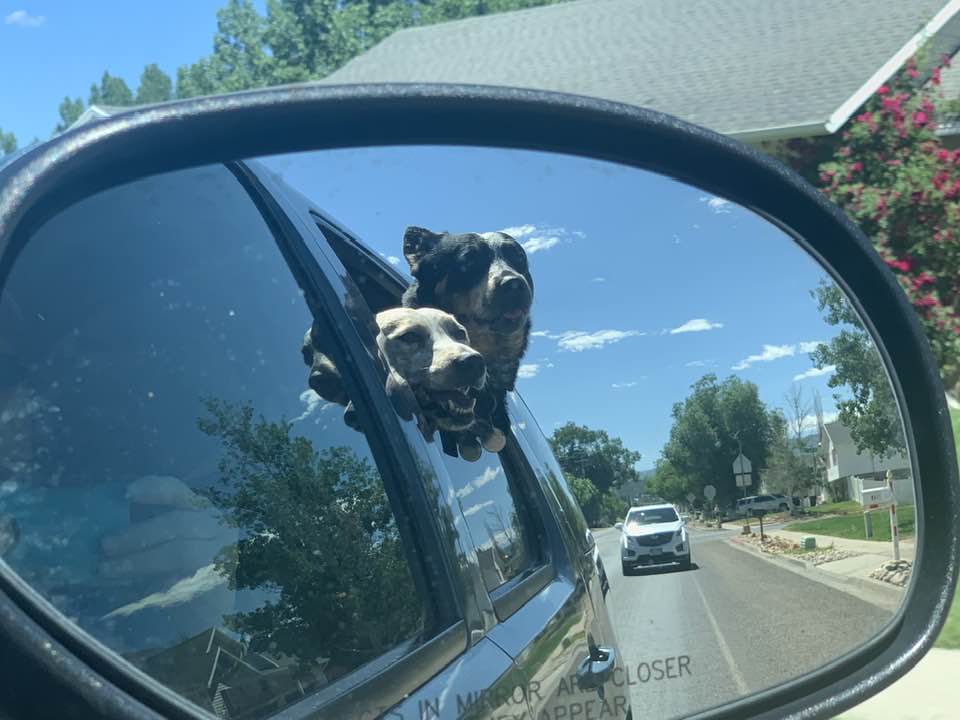
Today Finn and Cooper enjoy car rides and going places!
I am happy to let you know that I have created an in-depth, 10-step healing course called How to REALLY Help Your Dog’s Car Phobia. The course works because it addresses the core issue of trauma and a dog’s trauma responses. It is based in a science-backed approach that is always compassionate. It is the only course of its kind addressing this real concern dog owners have.
Are you ready to tackle this once intractable problem and begin to enjoy the world with your dog?
References:
1Survey of Travel Related Problems in Dogs, Veterinary Record, Nov. 23, 2012.
C. Mariti, E. Ricci, M. Mengoli, M. Zilocchi, C. Sighieri, A. Gazzano.
surveyoftravelrelatedproblemsindogs.pdf from the VeterinaryRecord.bmj.com
2The Zebra Pet Ownership Statistics 2024: www.thezebra.com/resources/research/pet-ownership-statistics/#:~:text=According%20to%20Statista%2C%20PetSecure%2C%20Growth,471%20million%20pet%20dogs%20worldwide.
3Dogs Owners Don’t Know Crucial Signs of Anxiety
www.thekennelclub.org.uk/media-centre/2023/august/alarming-research-shows-up-to-nine-in-ten-dont-know-crucial-signs-of-anxiety-in-dogs/#:~:text=The%20research%2C%20which%20questioned%20over,how%20a%20dog%20shows%20fear.

